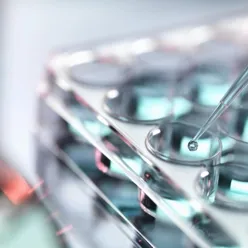Lewy Body diseases (LBD) are a group of chronic neurodegenerative diseases, including Parkinson’s disease (PD) and Dementia with Lewy bodies (DLB). Already at the time of clinical diagnosis, there is evidence of widespread neuronal damage in the brains in LBD, that may be too advanced for a disease modifying therapy to have a meaningful effect.
Challenges and Opportunities
Notably, more than 10 years before the point of LBD diagnosis, individuals may experience a range of prodromal symptoms, like impaired smell sense, constipation, sad mood, anxiety, or abnormal dream enactment during sleep, indicating that the LBD will subsequently develop. It is during this prodromal phase, when more neuronal tissue can potentially be preserved, that testing of new therapies is likely to be most effective.
This project extends on our previous work by developing ultrasensitive biomarkers and using cutting edge methods to transfer our CSF biomarkers to blood-based assays in renowned cohorts of clinically diagnosed LBD. These tests will be used to identify patients with well-defined biological signatures of LBD pathology who are in the prodromal stage of the disease, before neurodegeneration has progressed to a stage at which treatment may no longer be effective. This will enable affordable screening of candidates for improved clinical trials, and eventually for treatments developed against the disease.
